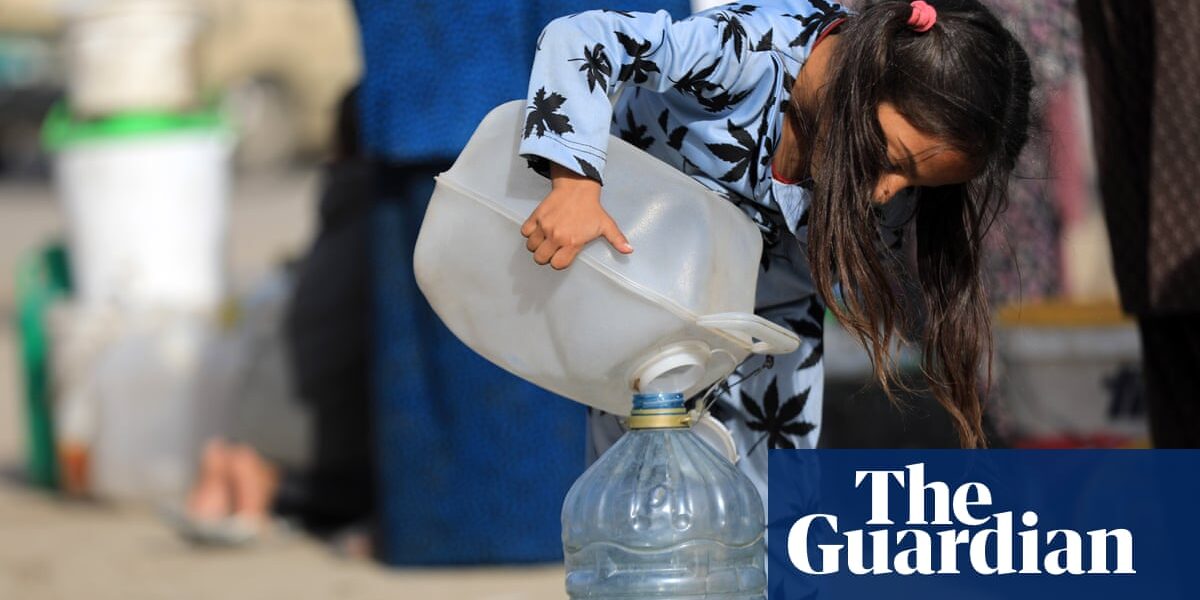The United Nations reports that women and girls are usually the first to experience the negative effects of droughts in impoverished and rural regions.

The United Nations has called on countries to address conflicts over water resources and recognize that women and girls in impoverished rural areas are most affected by drought.
The latest report from the UN on world water development states that stress on water resources, caused by the climate crisis, overuse, and pollution, is a major contributor to conflict.
The study states that the potential for utilizing water resource cooperation as a means of promoting peace is frequently neglected. The authors also note that enhancing cooperation for access to freshwater would positively impact the well-being of females.
Females are primarily responsible for gathering water in impoverished and rural regions worldwide. The absence of proper sanitation contributes to girls leaving school and heightens their and women’s susceptibility.
The leader of Unesco, Audrey Azoulay, who publishes the yearly water report for the UN, stated that as water scarcity becomes more severe, the chances of conflicts at a local or regional level also increase. Unesco’s message is evident: in order to maintain peace, we must take prompt action to protect water resources and improve cooperation at a regional and global level.
The availability of water is a crucial matter in the dispute between Israel and Hamas in the Gaza Strip. There are claims that Israel is using control over freshwater as a weapon, due to Gaza’s dependence on Israel for the majority of its water supply. This has resulted in hundreds of thousands of children experiencing extreme hunger and near-famine conditions. The scarcity of clean water not only causes thirst but also disrupts medical care and cleanliness.
The editor-in-chief of the Unesco annual world water development report, Rick Connor, stated that the report did not address conflicts related to water, as it was considered to be too politically sensitive.
According to him, water has frequently been utilized, attacked, or harmed during times of warfare, but usually not as the direct cause of war itself. Disagreements related to water can arise when there is an imbalance between demand and supply, when pollution affects its availability, when access to water is limited, or when there are disruptions to water and sanitation services. These conflicts can vary from legal disputes to violent confrontations, often influenced by specific events and conditions in a particular location.
The report discovered that water shortages and conflicts related to water have resulted in forced migration, food insecurity, and various health risks. Women and girls face particular dangers from these consequences.
According to Connor, violating international humanitarian law, such as the Geneva convention, is strictly prohibited, specifically targeting civilian water infrastructure. There are various ways at the global scale to foster peace through water, such as agreements and cooperation regarding shared international waters and utilizing human rights-based approaches.
According to Alvaro Lario, who is both the president of the International Fund for Agricultural Development and the chair of UN-Water, a recent report discovered that disputes over water are intensifying conflicts globally. Even though the involvement of water in warfare has been acknowledged, there is not enough focus on the possibility for collaborating over water to promote or maintain peace.
“Disregard advertisement for newsletter.”
after newsletter promotion
According to the speaker, if water is managed properly and fairly, it can bring about peace and success. It is also essential for agriculture and a significant factor in the economic wellbeing of billions of people.
Progress on addressing water-related problems has been slow due to the impact of the climate crisis, pollution, and excessive use of freshwater resources. As a result, many areas are facing additional pressure on their water resources. It is concerning that almost half of the world’s population does not have access to clean sanitation facilities, and 2.2 billion people lack a reliable source of safe drinking water. These figures have significantly worsened in the last twenty years, despite being a focus of the United Nations’ sustainable development goals for 2030.
If current patterns persist, a larger number of people will face water scarcity in the future. The latest report from the Global Commission on the Economics of Water, set to be released this September, has projected that global demand for freshwater will exceed supply by 40% by the end of the decade. This is separate from the UN-Water’s annual world water development report.
In the year 2022, approximately half of the global population faced significant water shortages at some point, and from 2002 to 2021, over 1.4 billion individuals were affected by droughts.
Source: theguardian.com




